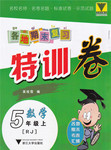When an ant dies, other ants take it out of the nest, often within an hour after its death. This behavior interests scientists and they wonder how ants know for sure—and so soon—that another ant is dead.
One scientist recently came up with a way to explain this ant behavior. Dong-Hwan Choe is a biologist, a scientist who studies animals and plants. He found that ants have a chemical on the outside of their bodies that signals to other ants, “I'm dead—take me away” when it is dead.
But there's a question to answer: As we know, if an ant is dead, it stops moving. But when an ant is sleeping or knocked unconscious, it is also not moving. However, other ants don't move the living ant out of the nest. How do they know this ant is not dead? Choe found that ants have another chemical on their bodies, which tells nearby ants something like, “Wait—I'm not dead yet” when it is not dead. Choe suspects that when an ant dies, the chemical that says, “Wait I'm not dead yet” quickly goes away. When other ants detect the “dead” chemical without the “not dead yet” chemical, they move away the body.
To test his theory, Choe and his team put different chemicals on ants. When the scientists used the “I'm dead” chemical, other ants quickly moved the treated ant away. When the scientists used the “Wait—I'm not dead yet” chemical, other ants left the treated ant alone. Choe believes this behavior shows that the “not dead yet” chemical overrides the “dead” chemical when picked up by other ants. And that when an ant dies, the “not dead yet”  chemical fades away. Other nearby ants then detect the remaining “dead” chemical and remove the body from the nest.
chemical fades away. Other nearby ants then detect the remaining “dead” chemical and remove the body from the nest.
Understanding this behavior can help scientists figure out how to stop ants from invading new places and causing problems.
1.What is the function of the first paragraph?
A. Leading the following paragraphs.
B. Showing the main idea of the passage.
C. Introducing the background of the passage.
D. Giving a summary of the passage.
2.Which of the following has the closest meaning to the underlined word “overrides” in the fourth paragraph?
A. is weaker than B. is stronger than
C. is better than D. is worse than
3.What can we learn from the passage?
A. Living ants can also be taken away when they are not moving.
B. When an ant dies, it can tell others using a certain chemical.
C. A living ant can pretend to be dead using a special chemical.
D. Ants often use chemicals to communicate with each other.
4.Which of the following descriptions about Dong-Hwan Choe is right?
A. Choe did this study in order to stop ants from invading new places.
B. Choe is a biologist who is only interested in animals, especially in ants.
C. Choe first came up with an idea to explain this ant behavior,and then did some tests to prove his theory.
D. Choe did the research on this ant behavior on his own
5.What is mainly discussed in the passage?
A. How to decide whether an ant is dead or not.
B. Why ants have special chemicals on their bodies.
C. reasons for the removable behavior of ants.
D. How ants manage to keep their nests clean.

 各地期末复习特训卷系列答案
各地期末复习特训卷系列答案 小博士期末闯关100分系列答案
小博士期末闯关100分系列答案




 chemical fades away. Other nearby ants then detect the remaining “dead” chemical and remove the body from the nest.
chemical fades away. Other nearby ants then detect the remaining “dead” chemical and remove the body from the nest.